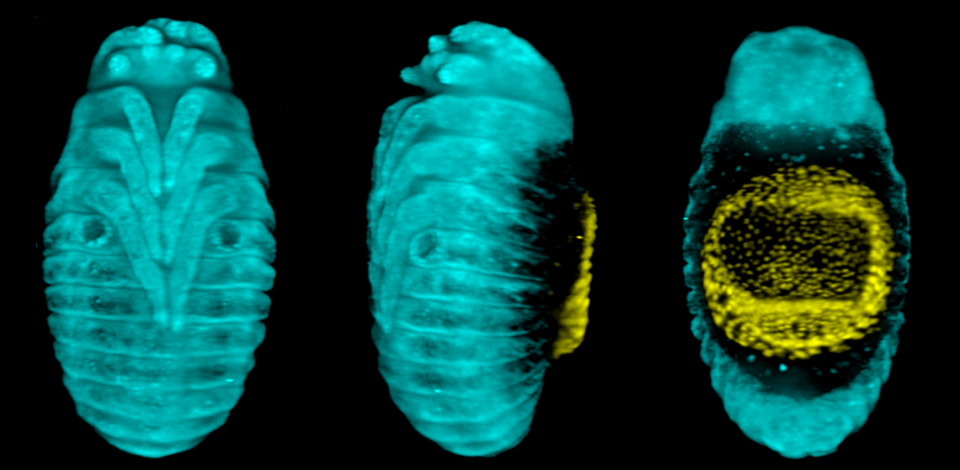LOEWE-Exploration funding for BMLS researchers: Nanobodies as a new approach for biological control of mosquitoes, bark beetles and other pests
11 April 2022. For their unconventional approach for a biological control of insect pests, Frederic Strobl and Ernst H.K. Stelzer received a 277000 Euro grant as part of the HMWK’s LOEWE-Exploration funding line. The "Barquito" project aims to lay the methodological foundation for the usage of nanobodies, i.e. small antibodies that derive from alpacas, to reduce the fertility of specific insect pests. The initial targets are the Asian tiger mosquito Aedes albopictus, which transmits infectious diseases and is currently establishing itself in Hessen as a result of global warming, and the European spruce bark beetle Ips typographus, a bark beetle species that regularly causes millions of Euro worth of damage in the Hessian forest landscape. Specific nanobodies are used to inhibit spermatogenesis, which reduces progeny count by around two-thirds. Since these nanobodies only act in males, the corresponding gene can be anchored in local populations with the help of females to achieve a long-term effect. The aim a novel approach to pest control that is less harmful to ecosystems than insecticides.
 Project origin: Initially, Frederic Strobl and Ernst H.K. Stelzer assayed nanobodies as an alternative intracellular labeling approach for fluorescence microscopy before considering them as a novel approach for insect pest control.
Project origin: Initially, Frederic Strobl and Ernst H.K. Stelzer assayed nanobodies as an alternative intracellular labeling approach for fluorescence microscopy before considering them as a novel approach for insect pest control.
Contacts:
Frederic Strobl and Ernst Stelzer, Buchmann Institute for Molecular Life Sciences and Institute of Cell Biology and Neuroscience, Goethe University Frankfurt, Frankfurt/Main, frederic.strobl@physikalischebiologie.de, ernst.stelzer@physikalischebiologie.de
Link to the press release of the Hessian Ministry of Higher Education, Research and the Arts (HMWK):
https://wissenschaft.hessen.de/Presse/Vom-Fluch-der-Dimension-Tigermuecken-und-einem-Mikroskop-mit-Teilchenbeschleuniger